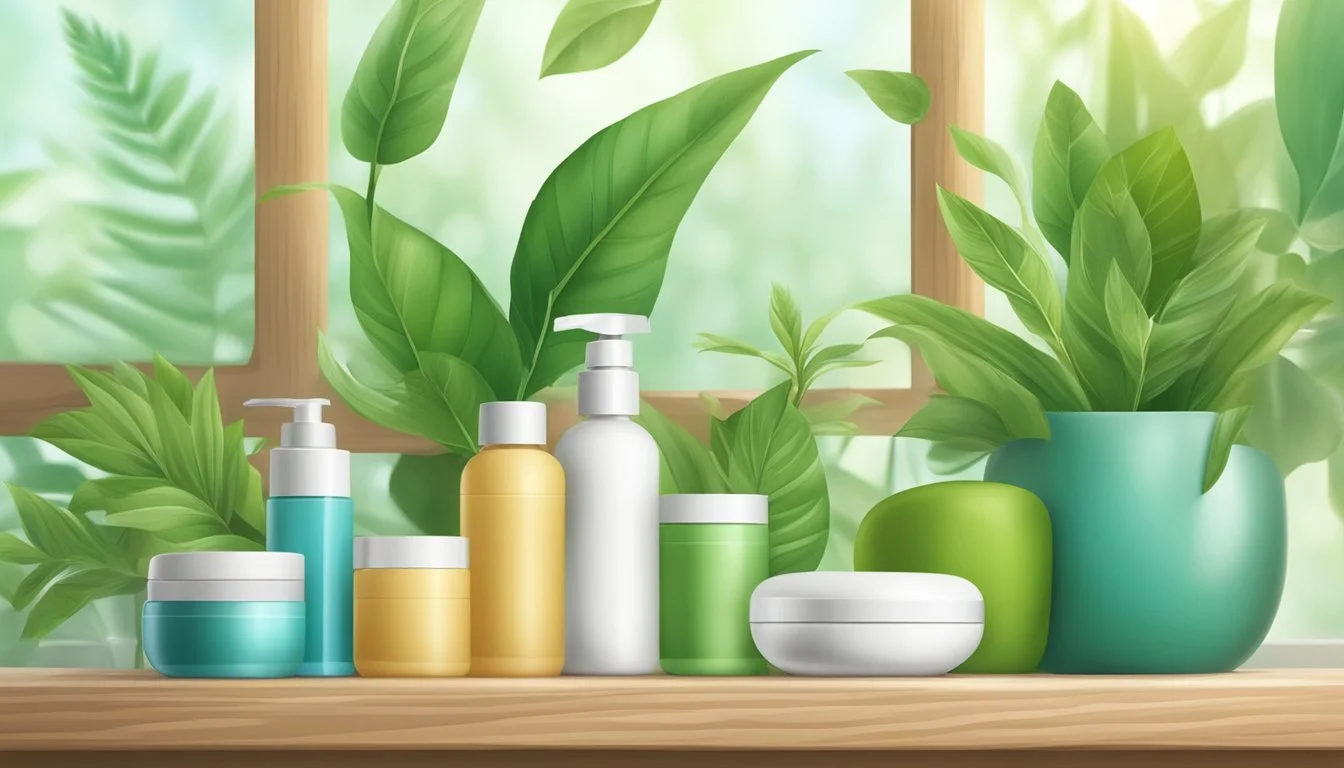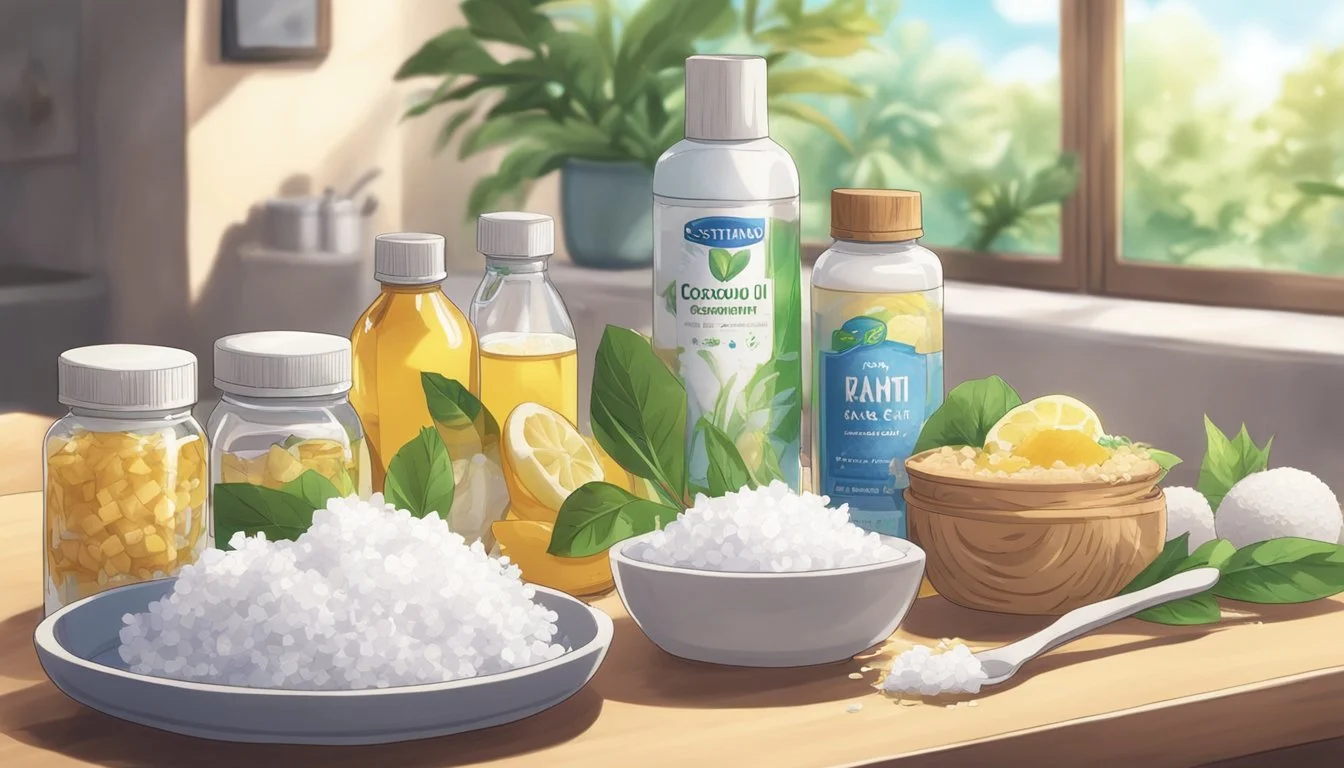Natural Oral Care Essentials
A Comprehensive Guide to Dental Health
This article is part of our series on Natural Health
Discover > Natural Health > Natural Oral Care Essentials
Natural oral care is essential for maintaining healthy teeth and gums, while also ensuring fresh breath and a bright smile. It is a holistic approach to dental hygiene that focuses on using natural ingredients and methods to clean and protect the delicate tissues inside our mouth. By adopting a natural oral care regimen, one can reduce exposure to potentially harmful chemicals often found in conventional dental care products, while still effectively addressing common oral health issues such as bad breath, cavities, and gum disease.
A variety of everyday natural ingredients can be incorporated into one's oral care routine. These ingredients often possess antimicrobial, anti-inflammatory, and soothing properties, making them an ideal choice for maintaining overall oral health. Essential oils, for example, are known for their antifungal, antiviral, and antibacterial nature. They can combat oral pathogens, improve blood circulation in the gums, and rejuvenate gum tissue.
In addition to essential oils, there are other methods to consider for a natural oral care regimen. Practices like oil pulling, which involves swishing cold-pressed oil in the mouth for a certain amount of time, have been used in holistic dental care for centuries. Overall, incorporating natural alternatives not only promotes oral wellness but also reduces the exposure to artificial and potentially harmful chemicals found in many conventional oral care products.
Understanding the Basics of Oral Care
Brushing and Flossing
To maintain good oral health, it is essential to establish a daily routine that includes proper brushing and flossing. Brush your teeth at least twice a day for two minutes each time, using a soft-bristled toothbrush. Divide your brushing time evenly among lower front, lower back, upper front, and upper back sides, brushing for 30 seconds in each section.
Flossing is equally important, as it helps to remove plaque and food particles between the teeth that can lead to cavities and gum disease. Floss daily to keep your teeth and gums healthy.
The Role of Toothpaste and Mouthwash
Using the right oral hygiene products plays a crucial role in promoting healthy teeth and gums. Toothpaste containing fluoride is highly recommended, as fluoride helps to strengthen tooth enamel and prevent tooth decay. In contrast, fluoride-free toothpaste, a natural and chemical-free alternative, may be chosen by those looking to avoid conventional fluoride-containing toothpaste.
In addition to toothpaste, incorporating a mouthwash or mouth rinse into your oral care routine can be beneficial. Mouthwash helps remove food particles left after brushing and flossing, freshens breath, and may contain additional antibacterial ingredients to kill germs.
Remember to visit your dentist regularly and avoid tobacco products for optimal oral health. By adhering to a consistent oral care regimen, you can significantly reduce the risk of dental problems and enjoy a healthier smile.
Exploring Natural Oral Care
Natural oral care has gained popularity in recent years as more people have become conscious of the potentially harmful chemicals found in conventional oral care products. Instead, those who opt for natural oral care look for products with plant-based, non-toxic ingredients that still deliver effective results.
The Benefits of Natural Ingredients
Natural ingredients offer several advantages over synthetic chemicals commonly used in traditional oral care products. Pure essential oils, for example, can provide cleansing and freshening effects without causing harm or irritation. Some popular essential oils for oral care include oregano, which has properties that may help prevent oral issues. Other plant-based ingredients, like gotu kola, can aid in wound healing and overall oral health.
Additionally, using non-toxic ingredients ensures that your oral care routine is safer and gentler on your teeth and gums. This can help reduce the risk of developing tooth sensitivity or negative reactions to harsh chemicals.
Evaluating Brands for Natural Oral Care
When choosing a brand for natural oral care, it's important to look for companies that prioritize transparency when it comes to their ingredients and manufacturing processes. Opt for brands that offer:
Plant-based ingredients: Ensure the natural personal care products are free of artificial chemicals and utilize natural alternatives.
No harmful chemicals: Avoid brands that use potentially harmful chemicals, such as parabens, SLS, or artificial sweeteners.
Environmentally friendly packaging: Consider companies that use sustainable packaging materials, like BPA-free or biodegradable options.
Transparent practices: Look for brands that openly share information about their sourcing, manufacturing, and overall commitment to sustainability.
Ultimately, natural oral care products can provide effective and safe oral care for those who want to avoid synthetic chemicals. By selecting products with all-natural and plant-based ingredients and supporting brands with transparent practices, you can maintain good oral hygiene while prioritizing your health and the environment.
DIY Natural Oral Care
Oil Pulling and Its Benefits
Oil pulling is a traditional oral detoxifying process that has been gaining popularity in recent years. Coconut oil is commonly used for this practice due to its antimicrobial properties. All you need to do is swish a tablespoon of coconut oil in your mouth for about 15-20 minutes. This process helps remove plaque buildup, strengthens gums, and whitens teeth. Moreover, studies suggest that oil pulling can improve overall oral health by reducing bacteria and inflammation.
Creating Your Own Toothpaste and Mouthwash
Using essential oils is another excellent way to maintain good oral hygiene. By creating your own toothpaste and mouthwash, you can avoid harmful chemicals often found in commercial products. Here's a simple recipe you can follow:
DIY Toothpaste:
4 tablespoons of coconut oil
2 tablespoons of baking soda (how long does baking soda last?)
1 tablespoon of sea salt
20 drops of essential oils (a combination of clove, peppermint, rosemary, and lemon works well)
Mix all the ingredients thoroughly to form a paste and store it in a jar. To use it, simply scoop a small amount onto your toothbrush and brush as usual.
DIY Mouthwash:
8 oz of distilled water
1 tablespoon of baking soda
4 drops of peppermint essential oil
4 drops of tea tree essential oil
Combine all the ingredients in a bottle, shake well before use, and take a small sip. Swish the mixture in your mouth, then spit it out.
The Use of Tongue Scraper
Tongue scraping is another essential component of natural oral care. Regular tongue cleaning can reduce bacteria and help prevent bad breath. Bamboo tongue scrapers are a great eco-friendly option to add to your natural dental care routine. To use a tongue scraper, gently glide it along your tongue from back to front, and rinse with water after each scrape. By incorporating this practice into your daily routine, alongside oil pulling and using DIY toothpaste and mouthwash, you can enjoy better oral health and fresh breath.
The Facts and Myths of Natural Oral Care
Addressing Common Misconceptions
There are several misconceptions surrounding natural oral care. Some people believe that natural remedies can fully replace professional dental care, but this is not true. It is essential to maintain a balance between natural oral care practices and professional dental care for achieving optimal oral health.
When it comes to natural oral care, some individuals might think that using ingredients like myrrh or other traditional remedies is enough to maintain good oral health. However, it is crucial to supplement these natural remedies with regular dental checkups and proper oral hygiene practices, such as brushing and flossing daily.
Another common misconception is the belief that sustainable and natural oral care products are less effective than their synthetic counterparts. This is not always the case, as many natural oral care products have been proven to be just as effective as conventional products in maintaining oral health. It is essential to choose high-quality natural products backed by scientific research for the best results.
Scientific Evidence Supporting Natural Oral Care
There is a growing body of scientific evidence supporting the use of natural oral care products and practices. Studies have highlighted the effectiveness of natural ingredients, such as myrrh, in promoting good oral health. For example, myrrh has been found to have antimicrobial and anti-inflammatory properties that can help in combating various dental issues, such as gingivitis and periodontal disease.
A study published in the New York Times has also shed light on the potential benefits of using natural toothpastes and mouthwashes. The article discusses how these products often contain fewer potentially harmful chemicals and additives, making them a safer choice for consumers looking for a more eco-friendly and health-conscious alternative.
The increasing demand for natural oral care products has led to a booming market, with the organic oral hygiene industry expected to grow steadily through 2024. This growth is driven by public awareness about health and safety, consumer cognizance concerning hazards of synthetic chemicals, and the desire to embrace environmentally-conscious choices.
In conclusion, it is important to address common misconceptions about natural oral care and acknowledge the growing scientific evidence supporting its benefits. By choosing sustainable and high-quality natural products, individuals can work towards maintaining better oral health without compromising on their eco-friendly values.
Maintaining and Enhancing Your Oral Care Routine
A strong oral care routine is crucial for a healthier mouth and maintaining healthy teeth. Incorporating natural and simple ingredients into the regimen can benefit overall oral health.
Both glycerin and baking soda can be effective components of an oral care routine. Glycerin serves as a great natural moisturizer and helps keep teeth and gums hydrated. It may be added to homemade toothpaste or mouthwash to provide additional benefits. However, it is essential to ensure that the glycerin used is of food-grade quality.
Baking soda, on the other hand, is a popular natural ingredient that aids in teeth whitening and neutralizing the mouth's pH balance. Simply sprinkling baking soda on a toothbrush and brushing as usual can help remove stains and maintain oral hygiene. However, it is advisable to use baking soda in moderation as excessive use may damage tooth enamel.
In addition to these ingredients, practicing proper flossing and tongue cleaning is vital for comprehensive oral care. Using approximately 18 inches of dental floss, wrap it around the middle fingers and firmly hold it between the thumbs and index fingers. This technique ensures efficient cleaning between teeth and the removal of dental plaque.
To enhance the oral care routine, try oil pulling before brushing. This ancient Ayurvedic method involves swishing cold-pressed oil, such as coconut or sesame oil (how long does sesame oil last?), in the mouth for a certain amount of time. Oil pulling may help remove bacteria and toxins, leading to improved dental hygiene and fresher breath.
Drinking fluoridated water and using fluoride toothpaste also promote oral health and the maintenance of strong teeth. Remember to brush twice daily and floss to remove plaque. Regular dental check-ups and professional cleanings should be scheduled at least once a year to maintain a healthy mouth.
In conclusion, incorporating natural oral care essentials like glycerin, baking soda, and oil pulling, along with proper brushing, flossing, and dental visits, can significantly enhance your oral care routine and promote a healthier mouth and teeth.






